Striking miners' wives recall their struggle
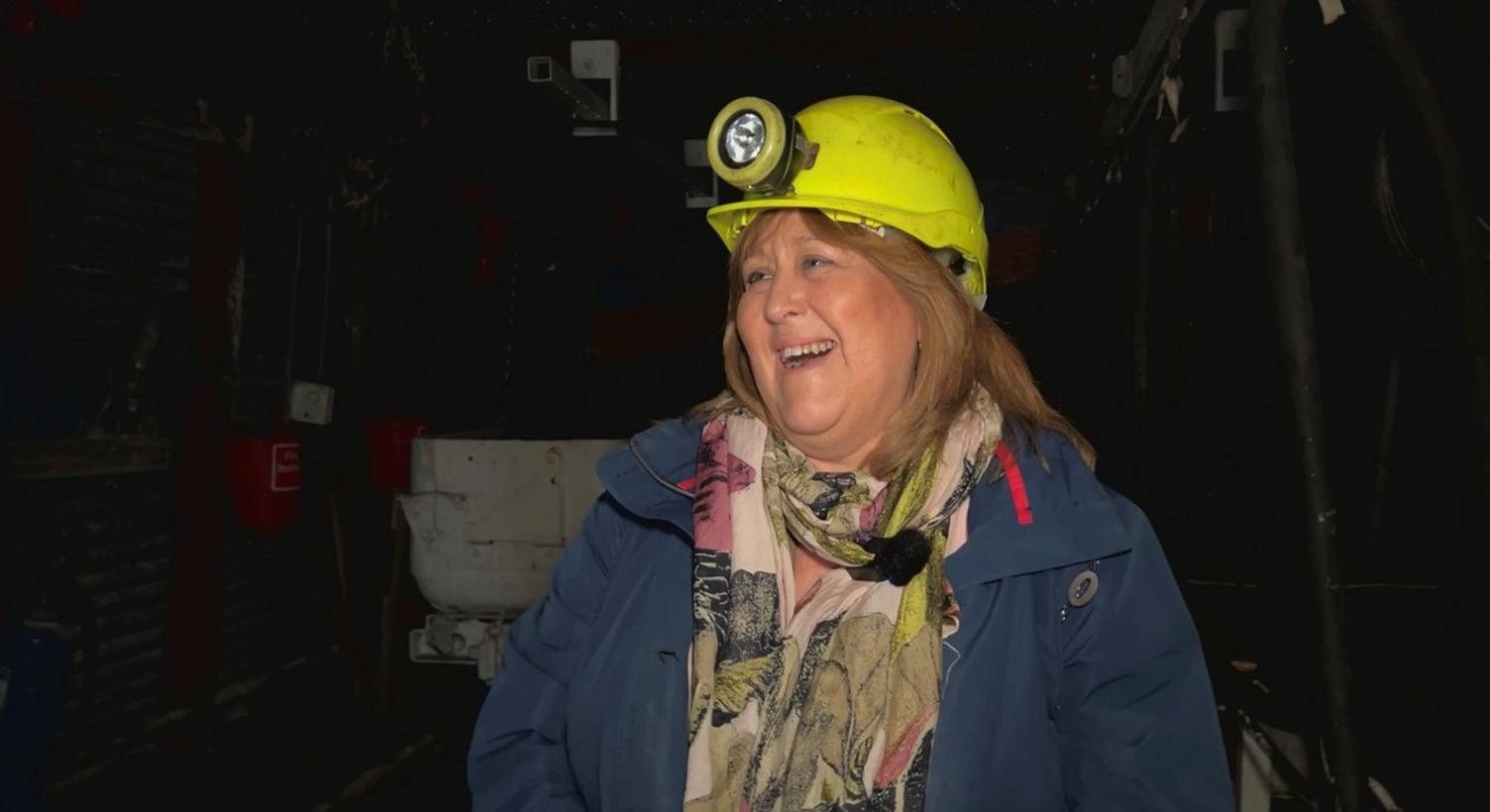
Rose Hunter, pictured at a museum, said the women created food banks to make sure everyone was fed
- Published
Women who were at the heart of protests against pit closures in Staffordshire have said they are "very proud" of standing up for their communities.
Nationwide strikes which took place 40 years ago saw bitter disputes as tens of thousands of miners fought the planned closure of 20 collieries deemed uneconomic by the National Coal Board.
It also brought people and communities together, such as Rose Hunter and Lynn Jones, who remain friends decades after fighting closures and providing support as part of the North Staffordshire Miners' Wives Action Group.
Reflecting on the anniversary, Ms Jones said they wanted to protect children's futures.
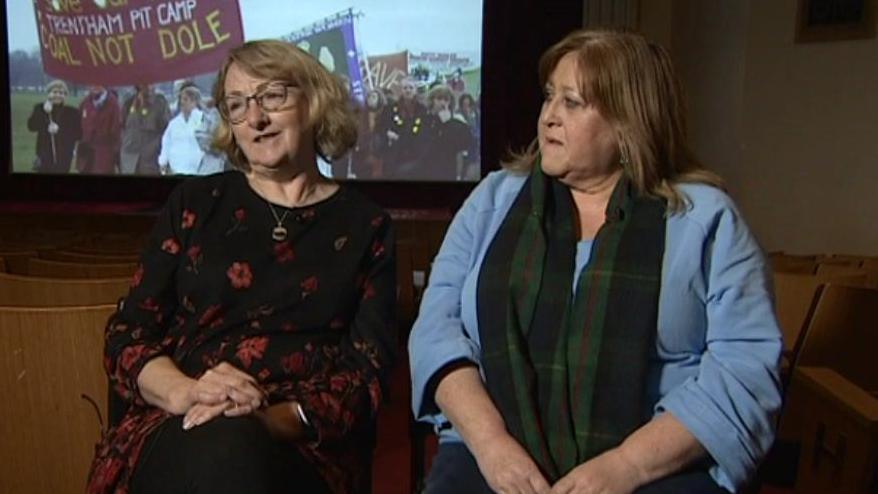
Lynn Jones and Rose Hunter said group members became good friends
"I was so proud of what we were doing and we could see already how our children were growing up and their futures - there was nothing in Stoke-on-Trent.
"The mines went and I do think part of my community died," Ms Jones said.
For many men in the National Union of Mineworkers (NUM), the walkouts left them and their families without wages for months.
Ms Jones said she was initially "quite excited" about the strike, which she thought would be over in weeks.
"I still can't believe that it went on for the length of time it did," she said.
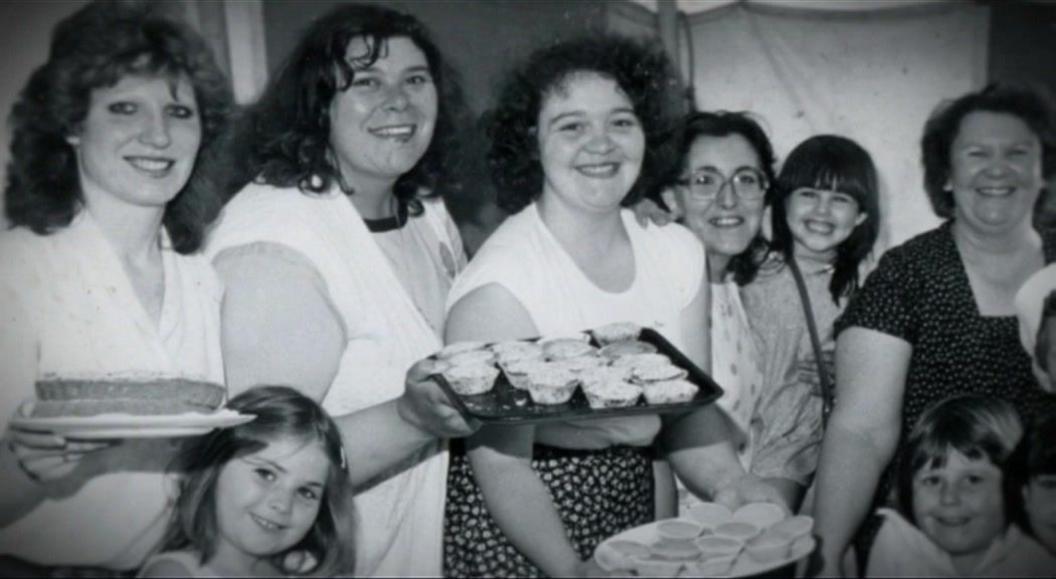
Members of the North Staffordshire Miners' Wives Action Group and their children in the 1980s
Ms Hunter said as soon as the strikes began the women "started mobilising" and knew what they were fighting for "was right".
"We agreed with what was going on because it was for the future, it was to save jobs and to save communities," she said.
Members of the group set up food centres around the coalfields of North Staffordshire and kitchens "making sure everybody was fed", she said.
"It was liberating really. We just all clicked and it was as if you were all fighting for the same thing," Ms Hunter said.
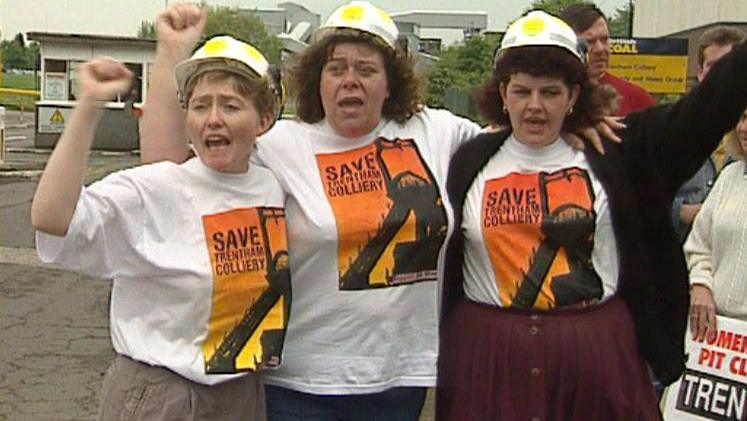
The group stayed in Trentham colliery as part of their protest
When Trentham colliery was threatened with closure, they set up camp outside for months and later took their demonstration inside the mine.
After they emerged, prominent NUM president Arthur Scargill told reporters of his respect for them.
"I think what has been achieved here is a tremendous display of courage and determination by women who rank alongside the suffragettes," he said.
At the very heart of the group was Brenda Proctor, who died in 2017.
But family and friends said she left a powerful legacy.
Her son Ryan praised the determination of his mother and her friends.
"They formed strong bonds that would never be broken during that strike," he said.
"And they went on to fight other injustices around the country."
Follow BBC West Midlands on Facebook, external, X, external and Instagram, external. Send your story ideas to: newsonline.westmidlands@bbc.co.uk, external
Related topics
- Published2 March 2024
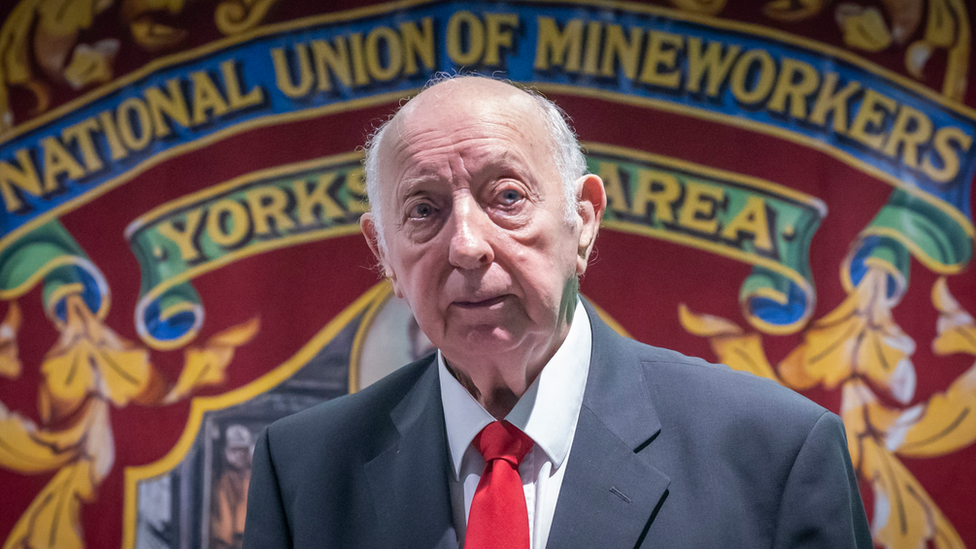
- Published4 March 2024
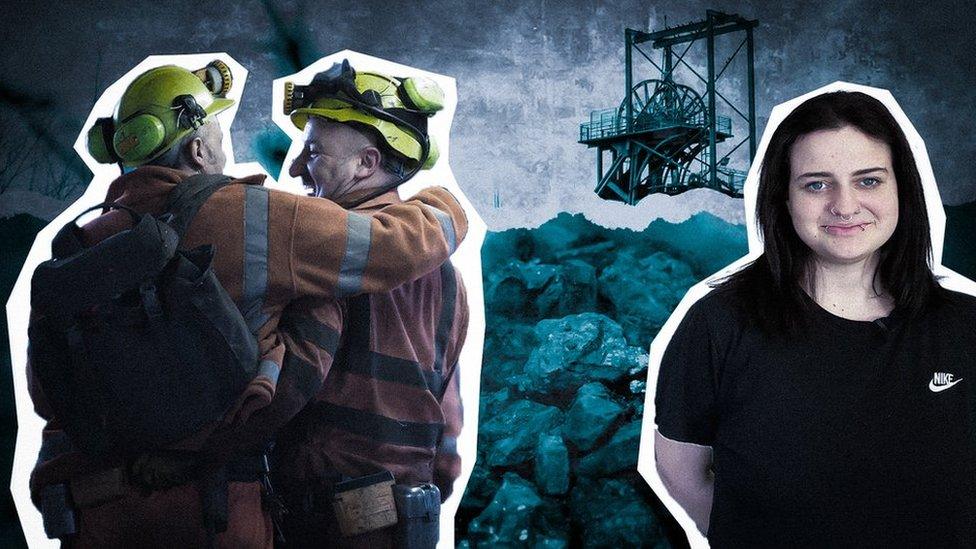
- Published3 March 2024
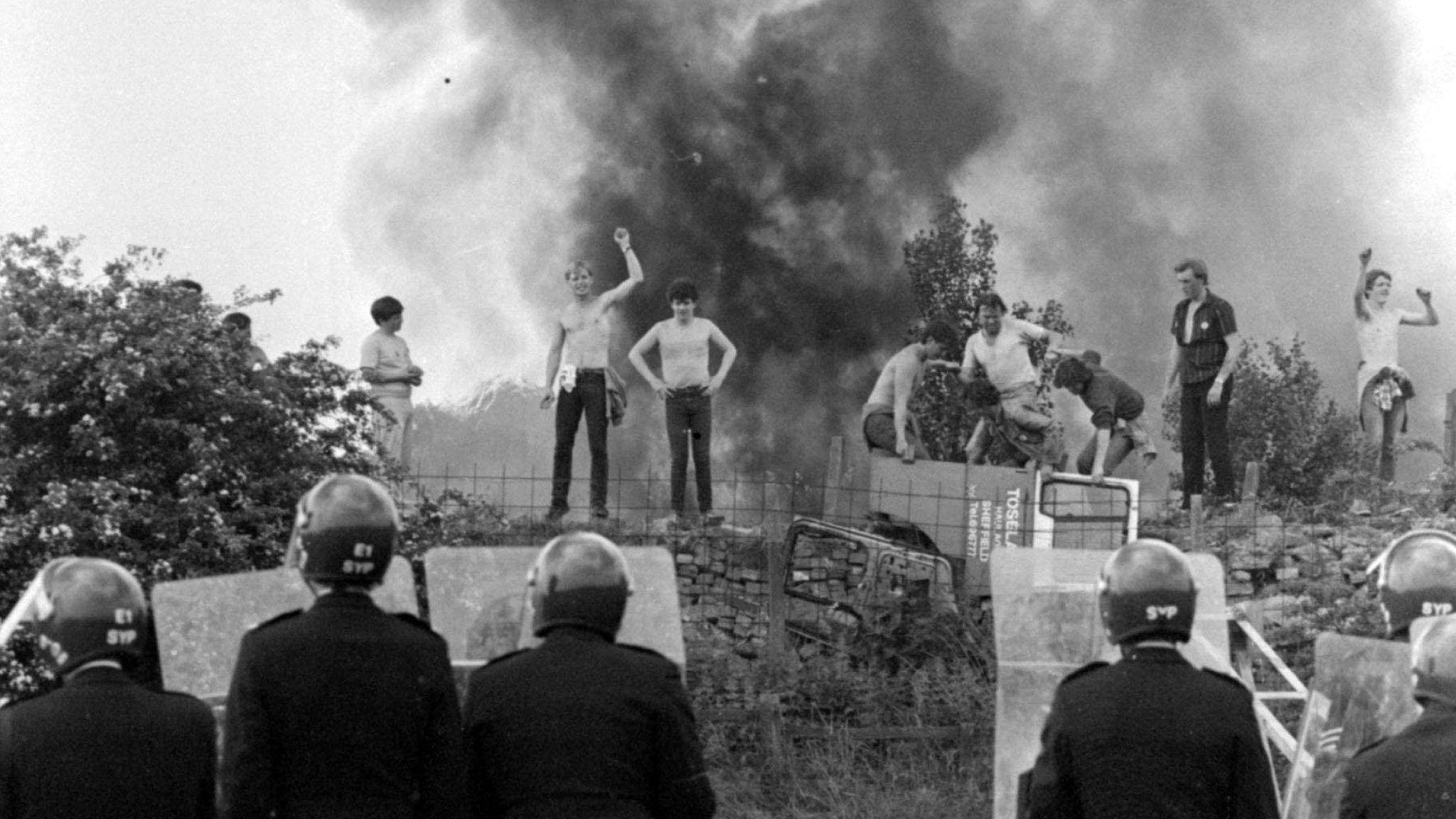
- Published6 March 2024

- Published2 March 2024
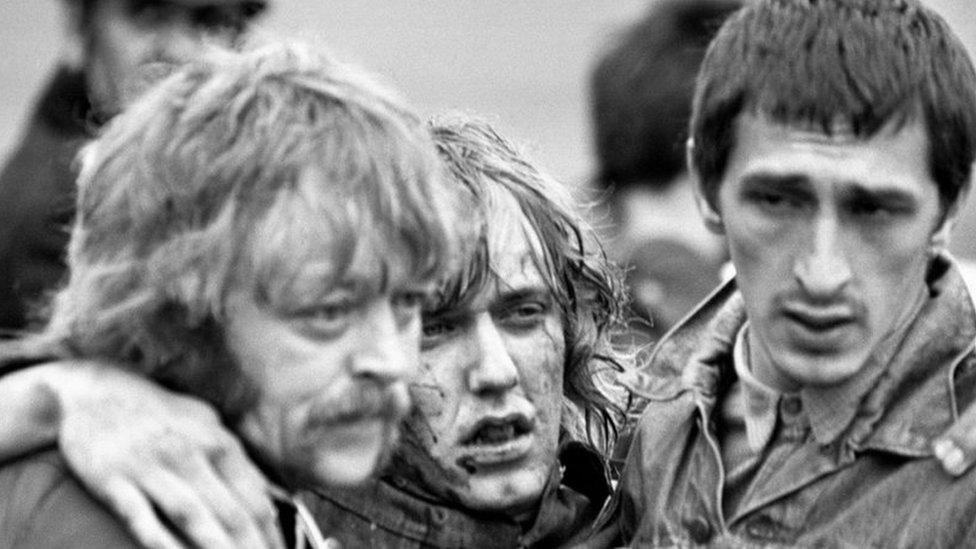
- Published12 March 2024
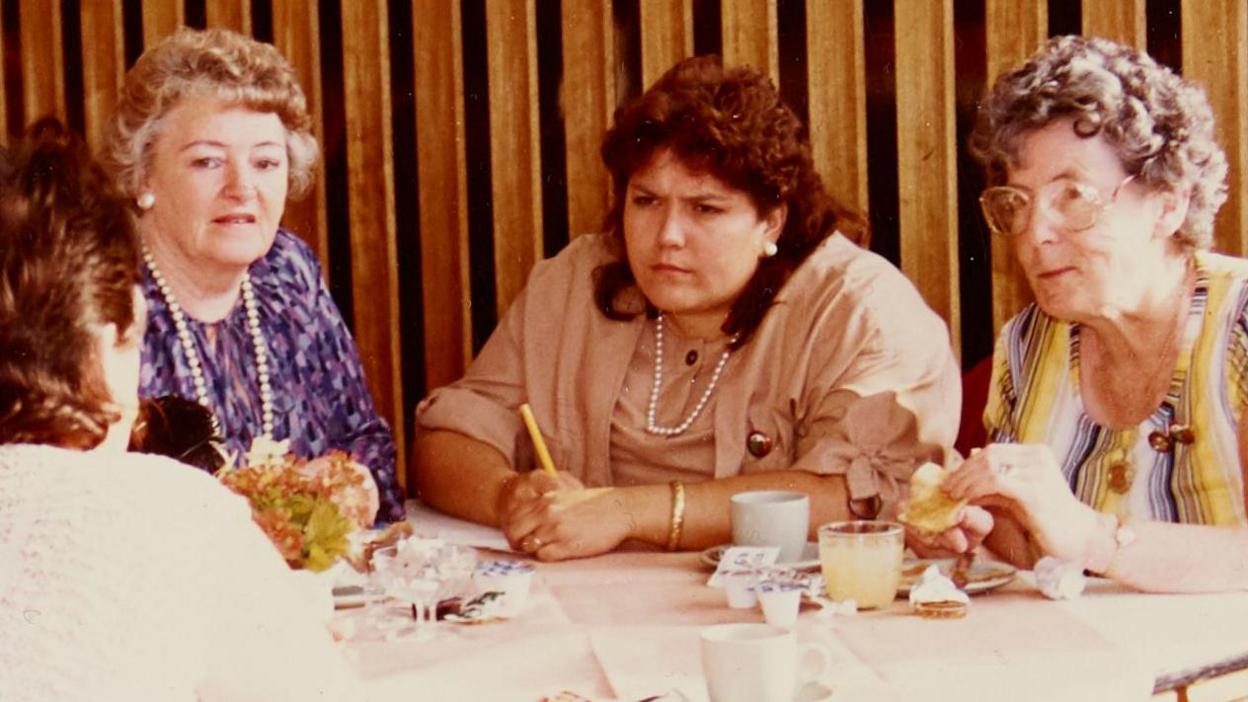
Around the BBC
- Attribution